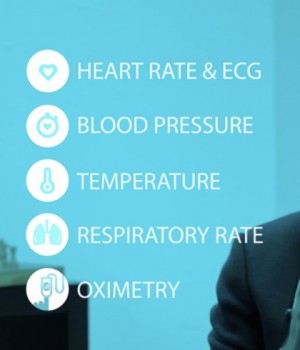The Holy Grail of internet search could soon be in the sites of an Adelaide upstart.
For years, technologists seeking to go one up on search giant Google – and Google itself through its Goggles search program – have been developing so-called visual search based on three-dimensional images. It is the form of search that most closely mimics the intuitive search behaviour of humans.
Adelaide’s Flinders University has been at the forefront of research in this area, and one that has made significant progress. Last year, a startup called Thereitis began to commercialise the technology developed by Flinders over the past decade and last month, Thereitis won a $250,000 “proof of concept” grant from Commercialisation Australia, the government’s own venture funding program.
“We are of course delighted to be selected from a highly competitive field by the Australian federal government,” said Guy Sewell, chief executive of Thereitis. “This validates our efforts and positions us well to tackle the global market of retailers seeking more effective ways to engage with consumers online.”
Thereitis will use the grant to further develop products and to validate its results with beta customers such as the bookstore Boomerang and Pinksofa. It also plans to build a social media platform, shopping portal and hard-drive management application to tap the direct consumer market.
Replicating human behaviour key to visual search
Started 12 months ago, Thereitis’ visual search technology “takes advantage of the brain’s innate ability to search” for a thing among hundreds of other diverse objects. “We replicate what you do hundreds of times a day subconsciously and leverage that power online,” said Sewell.
Thereitis has developed a simple range of web-based applications that help users search for photographs on their own computers, browse online dating services or social media sites – all using its visual search technology. The startup has built a three-dimensional search algorithm that scans large collections of unorganised visual data before quickly zooming in on desired objects. Results show a sharp reduction in search and find times, according to the company. Thereitis says its search engine has the capability to add a fourth or more dimensions to its search.
Other visual search engines that have made varied progress include Quintura, Searchme and Google Goggles, which is actually an Android app that allows users to take a photograph of an object and then use it to run a search.
Last month, Thereitis also won an award at Tech23, a program sponsored in part by the New South Wales government and run by Slattery IT Consulting. It was counted among the most innovative ICT companies in Australia





![Learn how to use Instagram as a business tool [FREE INFOGRAPHIC]](https://anthillonline.com/wp-content/uploads/2012/12/nickelbackinstagram-300x194.jpg)
![Strategic Alliances with Simone Novello [FREE INFOGRAPHIC]](https://anthillonline.com/wp-content/uploads/2015/08/Capture6-100x75.jpg)
![How to expand into New Markets with Elsita Meyer-Brandt [CHEAT SHEET]](https://anthillonline.com/wp-content/uploads/2015/07/Screen-Shot-2015-11-26-at-15.52.30-100x75.png)
![Networking is for suckers… master Inbound Marketing [FREE REPORT]](https://anthillonline.com/wp-content/uploads/2015/03/inboundreloaded-100x75.png)
![Seven steps to crafting the perfect email, with James Tuckerman [FREE REPORT]](https://anthillonline.com/wp-content/uploads/2015/08/7-steps-cheatsheet-3d-cover-nuova--100x75.png)
![How to secure lucrative sponsorships in five steps [CHEAT SHEET]](https://anthillonline.com/wp-content/uploads/2016/02/jackie-fast-meme-04-100x75.jpg)


![The Top 5 Most Insanely Dumb Mistakes made by Rookie and Seasoned LinkedIn Users, with David Hobson [FREE REPORT]](https://anthillonline.com/wp-content/uploads/2015/07/Screen-Shot-2015-11-26-at-14.29.18-300x194.png)
![Need cash for your startup or innovation? Here’s the Ultimate Grant Guide for Innovators and Startups [FREE DOWNLOAD]](https://anthillonline.com/wp-content/uploads/2015/10/INNOVATORS-GRANT-GUIDE-NFSU-page-spread-100x75.png)
![Do you have happy staff? 5 ways to improve performance [FREE DOWNLOAD]](https://anthillonline.com/wp-content/uploads/2016/06/chris-smith-cheatsheet-04c.pdf-Box-2016-06-30-20-45-20-100x75.png)
![Want more credibility and influence? Unlock the 12 principles of persuasion checklist [FREE DOWNLOAD]](https://anthillonline.com/wp-content/uploads/2016/03/james-persuasion-and-influence-nfsu-02.pdf-Box-2016-03-24-15-09-44-100x75.png)
![The Facebook Honey Trap with James Tuckerman [CHEAT SHEET]](https://anthillonline.com/wp-content/uploads/2015/11/Screen-Shot-2015-11-26-at-11.34.14-100x75.png)
![New Zealand’s Xero eyes US IPO, further disruption as subscribers increase [INFOGRAPHIC]](https://anthillonline.com/wp-content/uploads/2014/07/sruuuuujana-212x194.png)
![Ever wonder if your ‘content marketing’ is really just crap? You gotta see this! [INFOGRAPHIC]](https://anthillonline.com/wp-content/uploads/2014/08/content-100x75.jpg)
![7 Business Lessons From Game of Thrones [INFOGRAPHIC]](https://anthillonline.com/wp-content/uploads/2014/10/infographic-games-of-thrones-041-100x75.jpg)
![How to build your own Media Empire… In seven steps with Nathan Chan [INFOGRAPHIC]](https://anthillonline.com/wp-content/uploads/2014/10/Nathan-Chan-Infographic-e1413419529176-100x75.jpg)
![5 Business Lessons From Tinder [INFOGRAPHIC]](https://anthillonline.com/wp-content/uploads/2014/10/Tinder-Elegant-Infographic-100x75.jpg)



